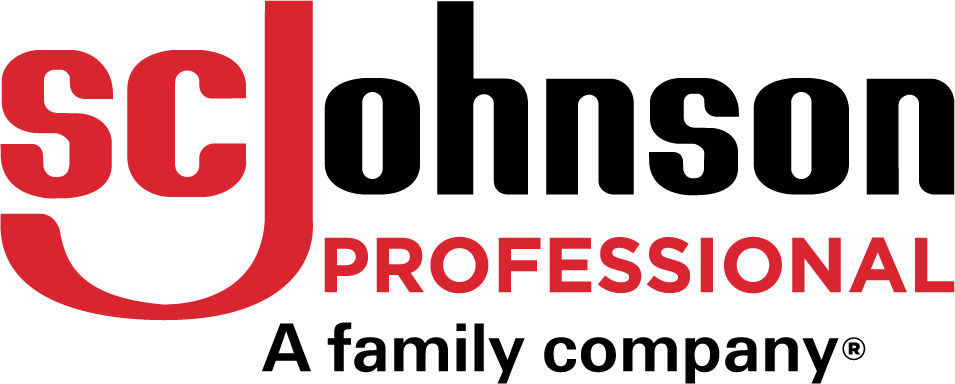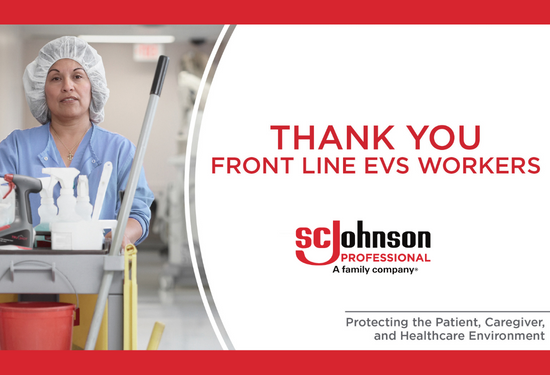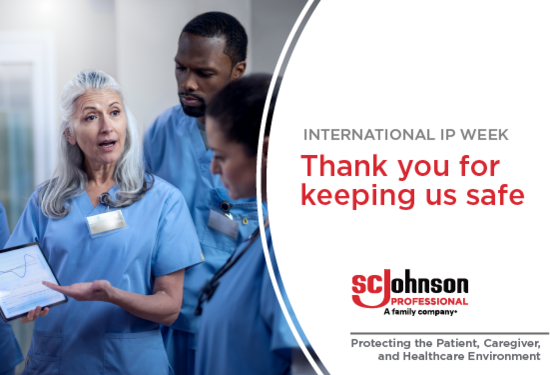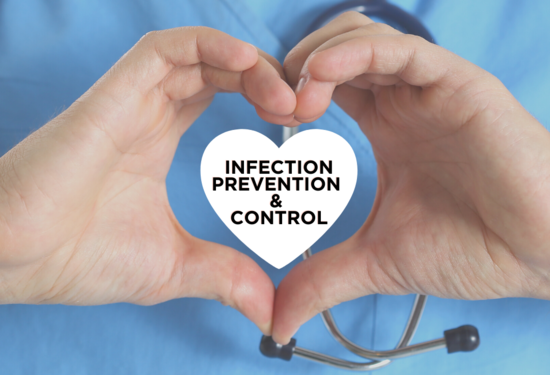Healthcare’s Unsung Heroes: Environmental Services Departments
By SC Johnson Professional, Healthcare
Patient experience is one of the most important aspects of health care quality. And an unsung hero in the fight to improve patient experience is the environmental services department.
Environmental services teams do much more than clean and disinfect patient rooms, exam rooms, treatment areas, restrooms and other public spaces within a hospital. They provide safe and welcoming environments for patients, visitors and staff.
To honor these unsung healthcare heroes, SC Johnson Professional pulls the curtain back to unveil personal stories of dedication, perseverance and pride from EVS directors around the country.
Why a career in EVS?
Working in EVS can be a rewarding experience, but there are often negative perceptions around a career in professional cleaning.
For Flash Fiegel, Division Director of Environmental Services, Laundry & Linen for CommonSpirit Health, a career in EVS began out of school. He first took a position in EVS because he needed a job but quickly realized there was much more to the position than cleaning.
“The more I realized the role went beyond cleaning, the more I thought this was something I could be passionate about,” Fiegel said. “It’s patient engagement, it’s safety, it’s infection control, it’s quality, and it’s cleanliness and perception. It’s not ‘just’ cleaning.”
Matt Curry, Director of Environmental Services, Beacon Health System, Memorial Hospital of South Bend, appreciates the diversity of his team and the impact EVS technicians have in the healthcare setting.
“I enjoy the accomplishment of thoroughly cleaning and disinfecting patient areas, patient rooms and other spaces within the hospital,” Curry said. “I also like training. I teach a certification class through the American Hospital Association for environmental services cleaning which is very rewarding.”
Lisa Davies, Director of Environmental Services and Patient Transport for Dignity Health began her career as an operations manager for a janitorial company in 2008. After seven years with the business, she made the switch to healthcare.
“I chose a career in healthcare to feel like I am making a difference in the world,” Davies said. “The most rewarding aspect of my job is the people I work with. I have strong relationships with my staff, and it’s an honor to see many of them develop into new careers within our organization.”
Rewarding moments in an underappreciated profession
Every day, EVS technicians go above and beyond cleaning, whether they are recognized for it or not. For example, Fiegel shares a story of a housekeeper who prevented a patient from falling. The housekeeper was cleaning a patient’s room and noticed the patient trying to get up to go to the restroom. The housekeeper asked the patient to wait until he could find help, but the patient ignored his request, and the housekeeper had to catch the patient to prevent a fall.
“Stories of EVS technicians helping patients like this happen every day,” Fiegel said.
COVID-19 has had a dramatic impact on how EVS departments operate, and in some cases, how they interact with patients. For example, when there were staffing shortages during the largest COVID peak in 2020, Curry had multiple staff out with COVID so needed to jump in and help clean patient rooms. While in an airborne isolation room cleaning and disinfecting, a patient told Curry that he was not going to make it.
“I cleaned the room very thoroughly and as I was leaving the room, I set up the picture of the patient and his wife since I noticed it had fallen down,” Curry said. “As I walked out of the room, the patient’s wife, children and the chaplain were entering the room to say goodbye to the patient.”
This is just one example of how EVS associates have risen to the occasion and persevered throughout the pandemic.
For many EVS workers, getting to know the patients can make all the difference – for both the worker and the patient.
“Making the rounds on patients every morning is something I really enjoy,” Davies said. “I spend time with patients talking about things that make them happy, such as their family or pets. I always treat patients how I would want to be treated knowing that someday I may be a patient too.”
A commitment to excellence – and the team
The role of EVS within a hospital has always been important, but according to Fiegel, it has also been an “unspoken thing.” With the onset of the COVID-19 pandemic, the importance of cleaning and disinfection has taken on greater importance, and people around the world are taking direction from EVS.
Fiegel also says there’s a lot more to EVS than people realize.
“The industry continues to evolve,” Fiegel said. “Several years ago, we introduced UV disinfection technology. Now we’re exploring electrostatic sprayers, and hospitals have been using robotic technology to supplement workers. I’m not sure where the industry is heading, but it is exciting to know that it will evolve and improve.”
Curry agrees that the role of the EVS technician is complex.
“The complexity of the waste streams, like hazardous waste, regulated medical waste, general waste and other issues make cleaning in healthcare more challenging than in any other setting. It also makes it more rewarding.”
There’s one thing that Fiegel, Curry and Davies all agree on. It’s the people and the relationships they love most about their professions.
“The team that you surround yourself with is so important,” Fiegel said. “When you have good people around you, your life is so much better. It is a pleasure coming into work every day. I love my job because the people I work with are the best people in the industry.”
Return To News



